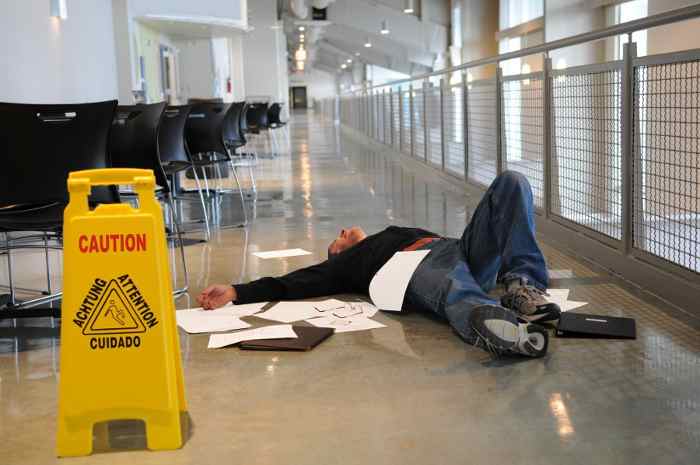No Workers Comp Benefits for Fall in Business Lobby
- Dan T. Matrafajlo
- Mon Mar 2015
- Workers Compensation,
- 0
In a recent unpublished opinion of the New Jersey Appellate Division, the court ruled against a worker who fell in the lobby of her employer’s building. Burke v. Investors Bank, No. A-1551-13T1, (N.J. Super. Ct. App. Div. Mar. 16, 2015) states that there were no workers compensation benefits due for the injuries resulting from this accident.
Laura Burke was an employee of Investors Bank when she slipped and fell on December 3, 2012. The accident occurred after she parked her car in the parking garage. She was not assigned a particular parking space. Investigation showed that Investors Bank was not the only tenant in the office building. According to their lease agreement with the building owner, Investors did not control the parking garage or the common areas of the building. This included the building’s lobby.
The accident happened when Ms. Burke slipped and fell as she entered the elevator from the building’s lobby. For workers’ compensation purposes, it did not matter if there was something wrong with the floor or its conditions at the time of the accident. However, in order for the accident to be compensable, it was necessary to prove that the employer had some control over the premises.
Going and Coming Rule
We have previously given you some information about the “going and coming rule” under New Jersey Workers Compensation law. The court determined that this case fell under this workers’ compensation exclusion. The employer was able to prove they did not direct their employees to use a particular elevator. Further, Investors had no control over the lobby or elevator entrance. Therefore, the court took the position that Ms. Burke’s business day had not yet started. The court therefore felt the claim was rightfully denied.
When the Workday Starts
New Jersey workers’ compensation laws define the start of the workday to include the following:
- Commences when employee arrives at the employer’s place of employment to report for work (excluding areas not under control of the employer)
- Terminates when the employee leaves the employer’s place of employment (excluding areas not under the control of the employer)
- When the employee is required by the employer to be away from the employer’s place of employment and is engaged in the direct performance of duties assigned or directed by the employer
- Travel time from one job site to another
- Use of an authorized employer vehicle
There are other occasions that require interpretation of the law as far as what is considered compensable under Workers Compensation Act. This includes police and firefighter on the way to calls and more.
Contact Us
Workers’ compensation law requires the knowledge of an attorney familiar with the intricacies of the benefits available to injured workers. Contact the office of Beninato & Matrafajlo to discuss your case.




